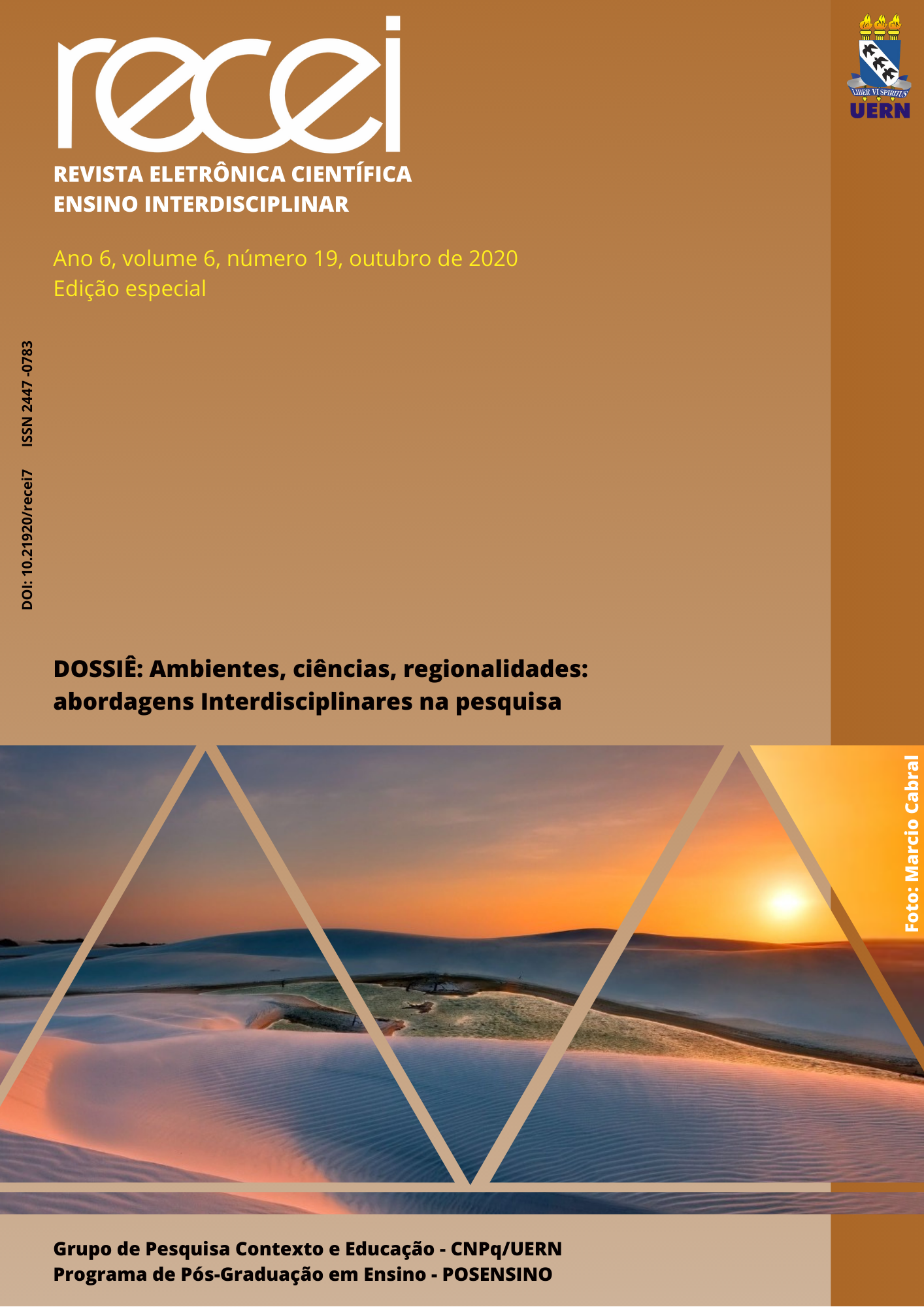COPPER AND CADMIUM BIOAVAILABILITY IN SOILS OF BAIXADA MARANHENSE
Resumo
The Maranhão lowlands present a diversified amount of wild animals, insects, and plants. The population has a food source based mostly on fishing, family farming, cattle, and buffalo farming. In this context, it is essential to investigate the anthropic impacts present in this environment. This work aims to verify the bioavailability in the adsorption of the potentially toxic metals Cu2+ and Cd2+ in natural and anthropized soils of the Maranhão lowlands. Soil samples were collected from two phytogeographic zones in Maranhão, the Cajari, and Viana municipalities. Determinations of organic matter, organic carbon, pH, PCZ, and quantification of the adsorbed metals in soil samples were carried out. The results showed that the pH and zero charge point (ZPC) parameters produced effects on the studied metal ions' adsorption capacity. The elements Cu2+ and Cd2+ described the adsorption favorably, with Cu2+ having greater adsorption capacity and bioavailability.



